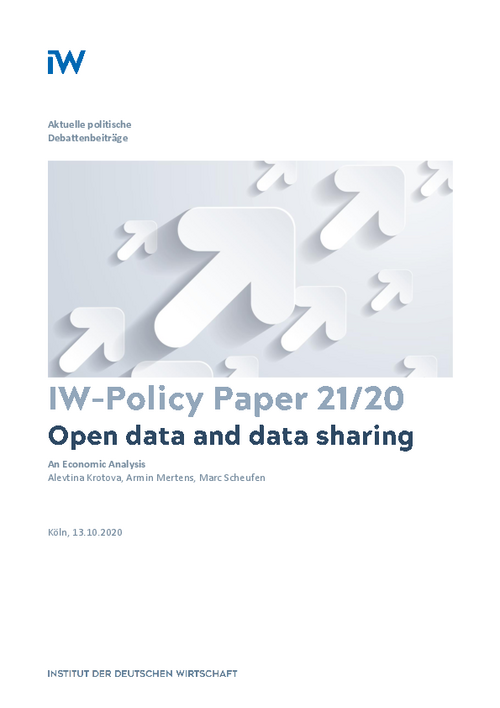Data is an important business resource. It forms the basis for various digital technologies such as artificial intelligence or smart services. However, access to data is unequally distributed in the market. Hence, some business ideas fail due to a lack of data sources.

An Economic Analysis: Open Data and Data Sharing

Data is an important business resource. It forms the basis for various digital technologies such as artificial intelligence or smart services. However, access to data is unequally distributed in the market. Hence, some business ideas fail due to a lack of data sources.
Although many governments have recognised the importance of open data and already make administrative data available to the public on a large scale, many companies are still reluctant to share their data among other firms and competitors. As a result, the economic potential of data is far from being fully exploited. Against this background, we analyse current developments in the area of open data. We compare the characteristics of open governmental and open company data in order to define the necessary framework conditions for data sharing. Subsequently, we examine the status quo of data sharing among firms.
We use a qualitative analysis of survey data of European companies to derive the sufficient conditions to strengthen data sharing. Our analysis shows that government data is a public good, while company data can be seen as a club or private good. Latter frequently build the core for companies’ business models and hence are less suitable for data sharing. Finally, we find that promoting legal certainty and the economic impact present important policy steps for fostering data sharing.

An Economic Analysis: Open Data and Data Sharing

More on the topic

Data Utilisation and Data Sharing: The Potential and the Reality in German Companies
Companies that store their data extensively in digital form, process it in a structured manner and use it in a variety of ways can become particularly efficient members of the data economy.
IW
Intellectual property and fourth industrial revolution technologies: how the patent system is shaping the future in the data-driven economy
Using the classification system from the European Patent Office (EPO), we identify almost 600,000 patent applications for fourth industrial revolution technologies from 1986 to 2015.
IW